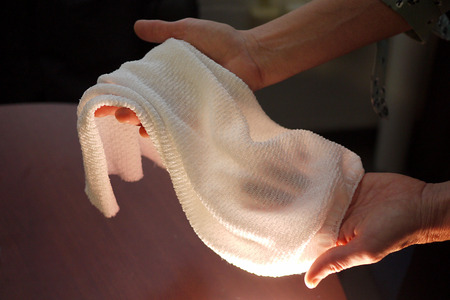
Steps to revive glory of Bengal silk industry
YarnsandFibers News Bureau 2018-02-08 15:00:00 – West BengalIn West Bengal, there are around 1 lakh 20000 farmers involved in sericulture covering 24,000 hectares of land in 29,000 villages of 17 districts where mulberry sericulture is practiced. Murshidabad, Malda, Birbhum, Nadia and Midnapore are the highest silk-producing districts in Bengal where the stakeholders are mainly marginal and semimarginal farmers, said Governor Keshari Nath Tripathi on the occasion of the plantinum jubilee of Central Sericulture Research and Training Institute (CSRTI) at Behrampore a premiere research institute of India.
Governor called upon CSRTI to take suitable initiatives for reviving the past glory of silk trade in India, addressing a small assembly of sericulture scientists, research scholars and learners of the institute.
The governor recounted the history of silk and sericulture industry that flourished in and around Murshidabad and took India to the competitive market globally in ancient, medieval and the British era. The governor said that it was his first visit to Murshidabad.
He made an appeal to authorities of CSRTI to come up with innovative technology that would enable India to revive the past glory of silk trade. With reference of history, Mr Tripathi said that by 216 BC, the fabulous silk was carried to Europe from China through Tashkent, Damascus, Baghdad and Istanbul and the Venetian traveller, Marco Polo, travelled through the silk route and reached India in 13th century AD.
By the second century, India was competing with China in the oriental silk market in the business of silk clothes and other fabrics, he elaborated, adding that the silk used to be produced in Subarnaganj or Karnasubarna of history (which is now located in Murshidabad district). The foreigners who came to India during the Mughal era were attracted to the Bengal silk, said the governor.
With the British East India Company opening a silk kothi at Cossimbazar, sericulture started flourishing in Bengal as the British started purchasing silk fabrics, he recounted, adding that the Dutch, the French and the Portuguese also opened kothis subsequently in Murshidabad.
With unparallel grandeur, natural sheen and high durability, silk is known as the queen of textile as it is the most elegant textile in the world. Unfortunately, the silk trade of India declined after the World War-I because of low demand in Europe.
Market Intelligence
Ask for free sample Report

experience
Customer Base
dedicated team
Countries Served Worldwide









